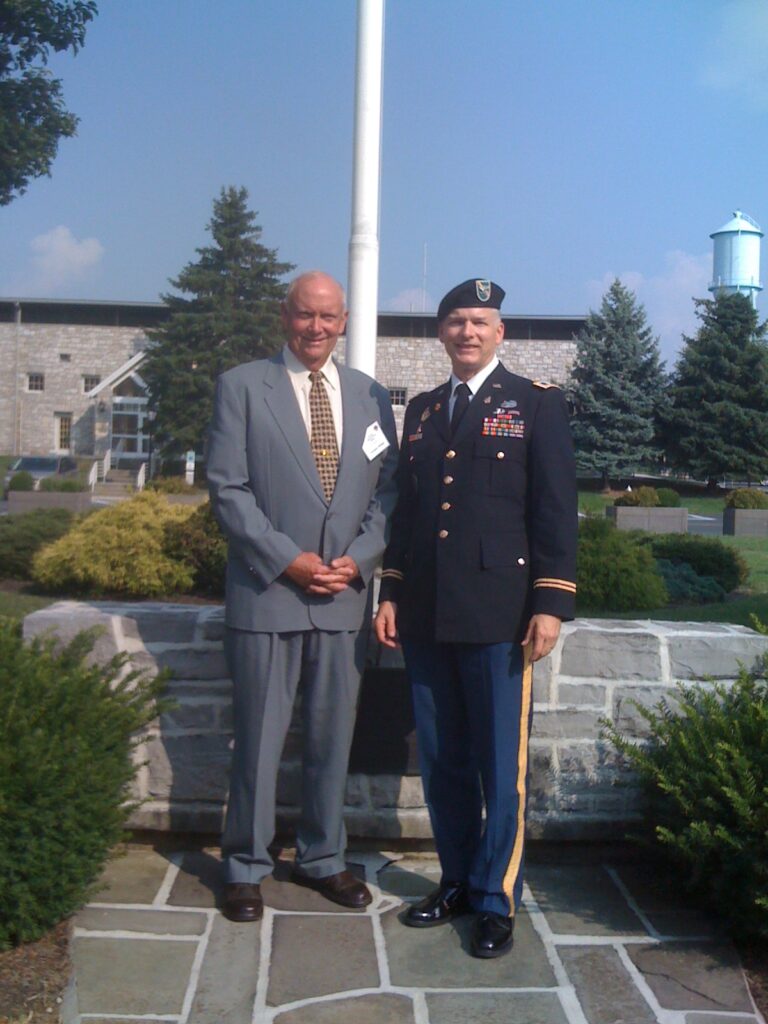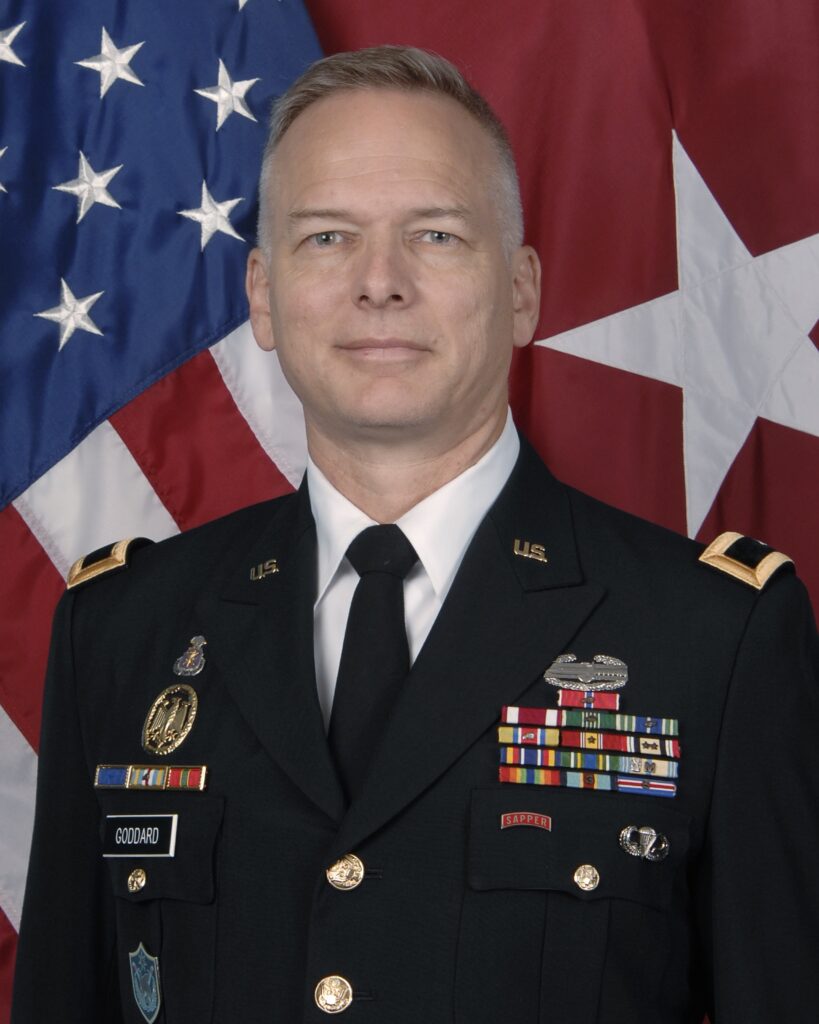
It’s been said that some people are born leaders. Glenn Goddard, a program director for our Engineered Systems business unit, as well as a brigadier general in the US Army Reserve, may be one of those people. Or he may just be someone who has taken advantage of all that life has to offer, who has never been afraid of a challenge.
When Glenn graduated college with a degree in civil engineering, he desired to travel the world applying his skills. Sensing that a job at an engineering firm might not offer that immediate opportunity, he enlisted in the Army as a private. Glenn found his way to officer candidate school and earned his commission as an engineer officer during his four years of active duty. At the end of those four years, in 1988, his story at Parsons begins, but his story with the Army doesn’t end, as Glenn continued serving as a reservist. His first boss at Parsons was also a veteran and, according to Glenn, hired him despite knowing that his technical skills might not be up to civilian standards. That’s because he also knew that he had plenty of people with the technical acumen, but what he needed was someone with the leadership skills that Glenn had learned in the Army.
Glenn says that the Army is a lot different than what many of us imagine or might see on TV, with scenes of people barking orders and yelling. Instead, his time in the service taught him that to be an effective leader, you had to surround yourself with smart people with varied skillsets and be able to listen to ideas rather than serve your own ego. “All of us is smarter than one of us,” he says. That team atmosphere is something that Parsons and the military have in common—people depending on each other to accomplish the task, and when the team succeeds, it’s because the team did well and came up with a good concept, not thanks to a single individual.

While Glenn was settling in at Parsons, working on programs such as Aramco, TSSC (FAA), Antarctica, and the Guam DPRI Base, he was also further building his leadership skills in the Army Reserve, skills that would continue to serve him well in his civilian career. “In the Army,” he says, “you’re supervising many, many more people than you would be at a comparable age at a civilian job. So, for example, when I was a 32-year-old captain, I commanded a company of 200 soldiers.” And that growth continued as Glenn advanced from company command to battalion command to brigade command and finally to general officer command, where he was responsible for 2,000 soldiers.
That kind of team environment and leadership experience is hard to come by outside the military, which is why Glenn is a big advocate for hiring veterans and a fan of Parsons’ MILVET program. Back when he started, in 1988, Parsons would make up the difference in pay for two weeks of military service per year for a reservist, but that was the extent of programs or benefits for veterans and reservists. For someone in Glenn’s position, two weeks wasn’t enough, and he would have to use vacation time to serve his country.
Today, our policy has evolved to cover reservists for up to a month, and in the event someone is mobilized, for the entire duration of their deployment. That’s a significant development for a company with an ever-growing number of veterans and reservists among our ranks. Perhaps equally important, though, is providing a supportive culture for veterans transitioning to civilian life as well as reservists.
“I think they need to know that they’re in a welcoming environment,” says Glenn, “so if they come in with an issue, like reserve duty, for example, we have plenty of advisors who can tell them, ‘OK, here’s what you should do.’ And we provide support for managers, too, to educate them about how the laws and processes work for employees who are in the reserves.”

Glenn also points out that advancing in one’s military career can look different than advancing in a civilian career, and that’s another area in which we can support veterans—helping them find the career path that best fits their interest and gets them where they want to go. He says, “You’ve got to find your happy place and what’s going to satisfy you in your job day in, day out.” That might mean advancing along a technical route and maybe even becoming a Parsons Fellow, or it might mean becoming certified as a project manager. Either way, helping veterans find those next steps is a great benefit of our MILVET program.
Anyone who talks to Glenn is bound to come away with a deep respect for his commitment and accomplishments, as well as for the high level of preparedness, the discipline, and the leadership that veterans contribute to Parsons’ projects and to our culture. And for anyone looking to follow in Glenn’s footsteps, he says, “My only advice is to always challenge yourself, because that’s how you’re going to grow.” All one has to do is look at Glenn’s career to know that those aren’t just words—he’s been leading by example his entire life.